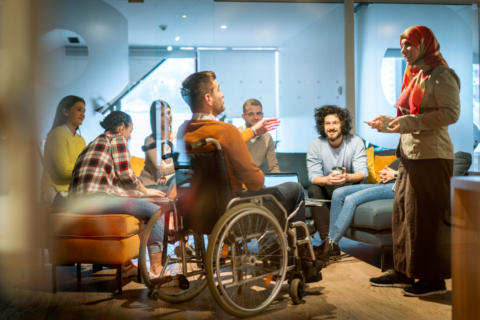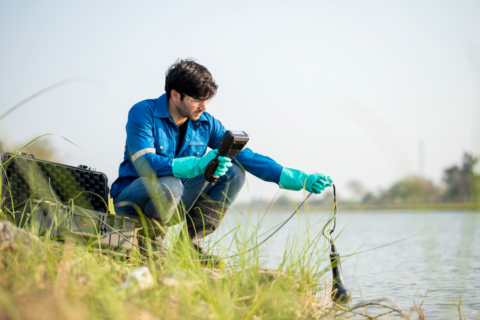By Kate Garman, Executive Director, MetroLab Network
On September 20, the National League of Cities is hosting an engaging discussion with MetroLab Network on innovative collaboration for cities and universities. Ahead of that discussion, we wanted to preview some of the work and findings MetroLab has published on the dynamics of partnering with universities. Partnerships between these two institutions can range from practical needs like campus land use and economic development, to addressing the complex policy and social issues of our communities. The latter is where MetroLab will focus first in this webinar: how can we change the relationship between cities and universities to specifically help solve priority issues and complex problems?
About MetroLab Network: MetroLab was born in 2015 as part of the White House’s Smart City initiative, but has evolved over time to think about civic innovation and partnerships much more broadly. Our mission is two-fold: 1) equip cities and counties with science, and 2) understand, support, and enable transformative partnerships between local governments and universities.
MetroLab chases a north star that supports building a mechanism to regularly bring civic research into city halls. To do this, MetroLab seeks to proactively understand the research needs and knowledge gaps of local governments, and we want to empower meaningful partnerships with universities and colleges, making civic research actionable and harmonious with city processes. We have started this process by talking to various communities. We also hosted an in-person workshop with an audience of city staff and university experts to better understand partnership dynamics. Here are some of our findings.
We asked our audience “how do you know who to work with on the other side?”
The majority of the answers from both local government staff and university officials included: 1) asking my colleagues; 2) relying on personal connections or people who I have worked with before; 3) peer networks.
A key takeaway here: networks are extremely valuable to create new connections and to inspire fresh ideas that can scale. Too often relationships and partnerships work in insular circles. It’s imperative to expand those circles for the sake of inclusivity and expansion of knowledge.
We also asked the room: “what is a myth you want to bust to the other side?”
Reminder: these answers reflect WRONG assumptions.
| Local Government Audience | University Audience |
| That we, cities, can experiment. That we are a lab. | Not everything needs complexity/nuance |
| Access to internal city data | That universities make a profit and can/should do work for less |
| It’s easy to form an agreement for commercialization on projects with academic institutions | That we can’t do practical problem solving |
| We will allow real-world pilots | Universities are eager to test their research in applied settings |
| Cities are unwilling to embrace change | Researchers aren’t invested in the impacts of their research (they only want to publish) |
| We require research to have “real world” applications | Universities aren’t citizens of the local community themselves |
| We aren’t all close minded and will trust the results of research | Not all university people do the work just for tenure or publications |
| That our city departments have a high level of control over funding, timing, et al | Research does not reside in an ivory tower |
| “Experts” are people with advance degrees | That quantitative data has all the answers and alone can drive us |
| Researchers have power |
Finally, we asked: “Local government audience: if you could get research on [blank], what would you want? University audience: what research do you think local governments need?” This question helps understand alignment and misalignment of current research needs.
Ultimately, we noticed two major differences in the responses from both sides. The first difference was level of specificity. The local government audience had answers that were 1) structured similar to how city departments are structured; and 2) specific in either asking about a particular problem and/or recommended interventions. Most of the answers from this audience started with the word “what” followed by [is the answer/problem/data I can get].
The university audience responded with local government research needs at a higher level, believing the needs to be things such as developing decision making platforms, understanding trust at large between residents and government, and evaluating past policy decisions. Indeed, most of the responses were process focused, beginning with the word “how.”
Ultimately, we know that there is much work to be done to build trust and impact between these two critical public institutions. During our webinar, MetroLab will feature a discussion on trends, hurdles, best practices in partnership. We look forward to discussing important topics with you such as understanding how to improve local government’s relationship with research, and how research can meet the processes of government? How do we create meaningful and impactful partnerships to bridge those gaps? We will also feature a panel discussion of local government leaders who have led transformative partnerships and are thinking about proactively addressing research needs.
Thank you again to NLC and the NLC Community for the opportunity to engage with what we know will be a productive conversation on September 20.







